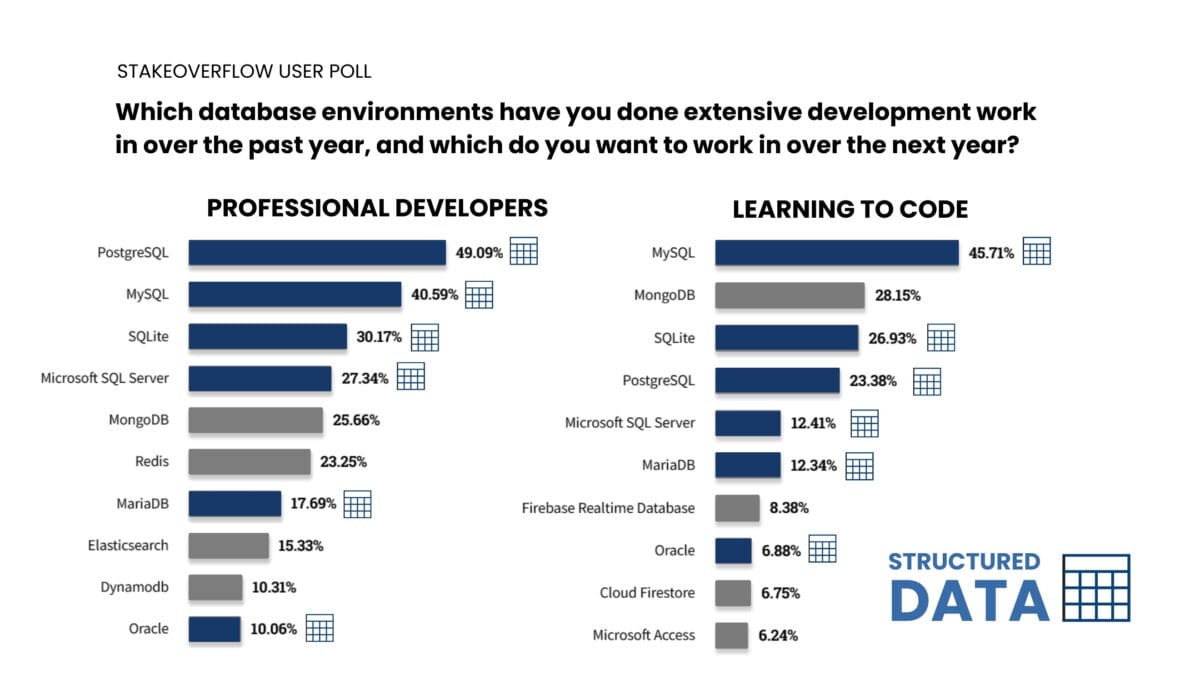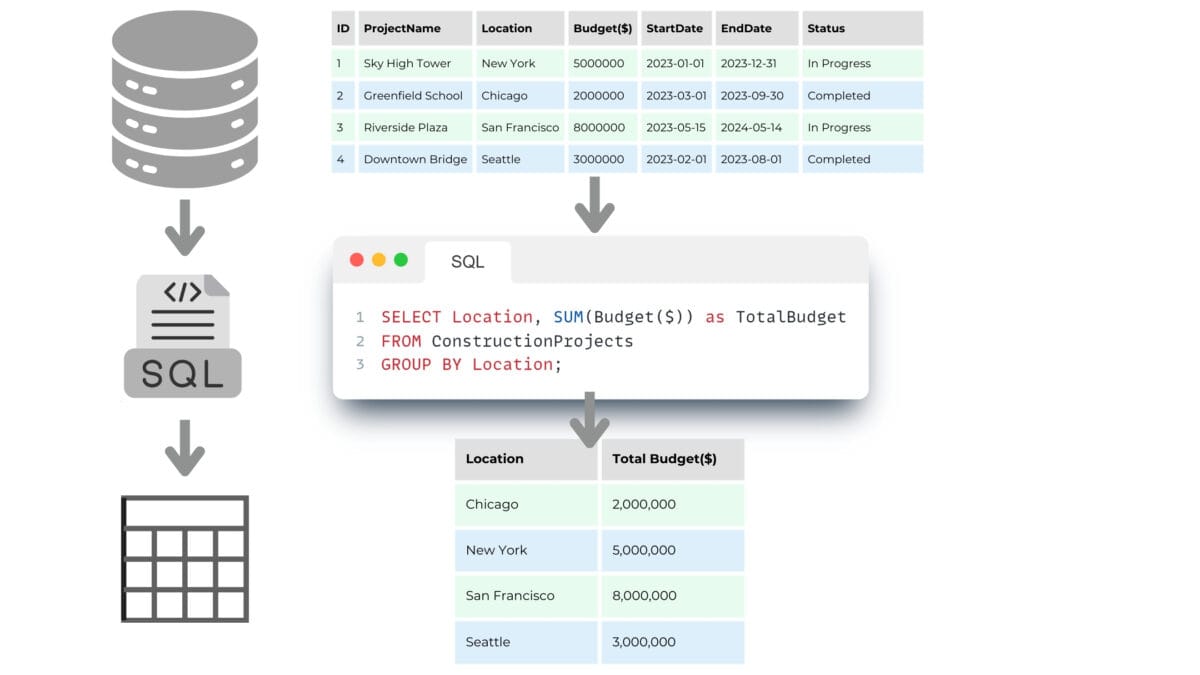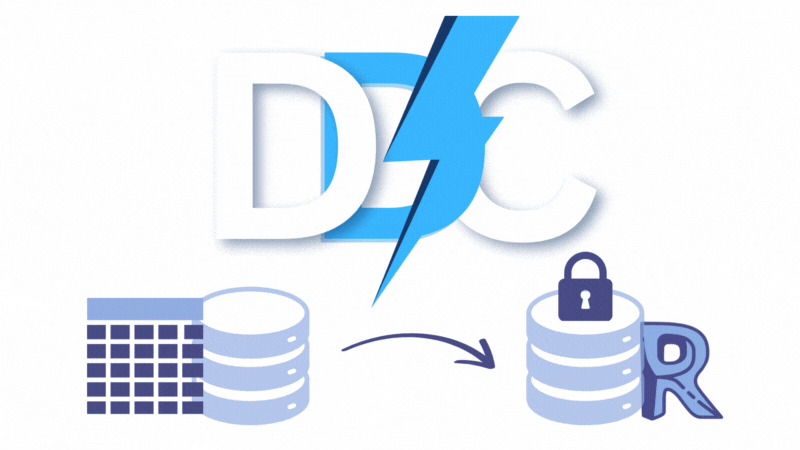Relational databases (RDBMS) are systems for storing data that organize information in tables with defined relationships between them.
Data organized into tables and databases do not simply represent digital information; they are the basis for transactions and interactions between different systems.
Here are a few of the most common relational database management systems (RDBMS):
- MySQL, part of the well-known LAMP stack (Linux, Apache, MySQL, PHP/Perl/Python), is preferred in the web application world for its simplicity and efficiency.
- PostgreSQL stands out for its powerful object-relational capabilities, offering advanced features and reliability for complex systems.
- Microsoft SQL Server, a commercial product from Microsoft, is widely appreciated in the enterprise environment for its extensive range of tools and security.
- Oracle Database, used in large enterprises, is a symbol of power and reliability for mission-critical applications.
- IBM DB2, also aimed at large corporations, offers high performance and reliability.
- SQLite is a lightweight option ideal for mobile applications and other situations where minimal database customization is required. It is often used in backend CAD (BIM) programs
Most database management systems in the construction business - MySQL, PostgreSQL, Microsoft SQL Server, Oracle Database, IBM DB2 and SQLite - work with structured data. All of these DBMSs provide powerful and flexible solutions for managing a wide range of business processes and applications, from small Web sites to large-scale enterprise systems. With their help, organisations can efficiently store, process and analyze data to form the basis for decision-making.

Survey of professional developers and novice programmers on StackOverFlow (the largest IT forum). Relational databases are highlighted in blue
The standard query language used to manage and manipulate data in relational databases is SQL (Structured Query Language). The evolution of SEQUEL-SQL systems goes through significant products and companies such as Oracle, IBM DB2, Microsoft SQL Server, SAP, PostgreSQL and MySQL and culminates in the emergence of SQLite and MariaDB in the last two decades.
SQL is a special language as a key to access all necessary information and its convenient processing, which helps to store, find, and analyze information in relational databases.

The SQL query language instantly processes large amounts of data, allowing to perform grouping and aggregation to instantly generate the necessary summary tables
The main advantage of the SQL language, often used in relational databases, over other types of information management in supporting very large database sizes with high query processing speed.

















